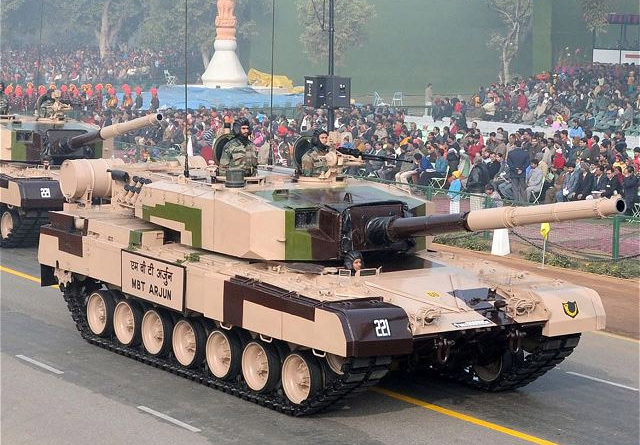Army To Place Order For 118 Arjun Mark 1-A Tanks
16 March, 2020
The Mark 1-A, developed by DRDO, features 14 major improvements sought by the Army, including better firepower and new transmission systems. The Mark 1-A features 14 improvements over the Arjun main battle tank.
New Delhi: After numerous delays and extensive trials, the Indian Army is set to finally place an order for 118 indigenously manufactured Arjun Mark 1-A ‘Hunter Killers’, which will have all-weather capability and better fire power and stability than the Arjun main battle tank (MBT).
Army sources told ThePrint that the Mark 1-A, which weighs 68 tonnes and features a 120mm main gun, has cleared all tests, and that cost negotiations with its developer, the Defence Research and Development Organisation (DRDO), are complete. The sources added that the Army has pushed the file to place the order, which will be done “soon”.
The move comes as a big boost for the Chennai-based Combat Vehicles Research and Development Establishment (CVRDE), a DRDO lab.
The Major Improvements
“The tank comes with 14 major improvements that the Army has sought, which will make it the most potent and self-protective tank in the Army’s inventory,” V. Balamurugan, director of the CVRDE, told ThePrint.
Balamurugan said the first tank will be rolled out from the factory within 30 months of the order of intent (the technical term used for the order) being placed.
He explained that four upgrades were made to the firepower of the tank, besides other developments, including new transmission systems.
The Mark 1-A includes an improved gunner’s main sight, integrated with automatic target tracking. This would enable the tank crew to track moving targets automatically, and engage them even when Arjun is on the move.
The Arjun Mk-1A’s gun is controlled by a computerised integrated fire control system, giving the tank has a high first round kill capability. The gun’s day-and-night stabilised sights, coupled with automatic target tracker, guarantee accurate engagement even in dynamic conditions, a senior DRDO official told ThePrint.
Other than the conventional fin stabilised armour piercing discarding sabot and high explosive squash head ammunition, the Mark 1-A comes with thermo baric and penetration-cum-blast ammunition.
The Arjun Saga
The Arjun MBT project was initiated in the mid-1970s, but the first two regiments of the tank were inducted into the Army starting 2004. Even then, they have never been used to their optimal capability because of a variety of reasons — including excess weight, issues with certain parts, and availability of spare parts.
The Arjun MBT had performed better than Russian T-90s during a desert trial conducted by the Army in 2010. However, reliability and availability weighed on the Army’s mind. The force argued that weight of the MBT, 62.5 tonnes, was a handicap as it meant that Arjun was too heavy for roads, bridges and canals along the Pakistan border.
The Army, in 2010, proposed an improved version of the tank, which would be called the Mark II, and was to have over 80 improvements, including 15 major ones.
However, this also meant that weight would increase further
Cannon-Launched Guided Missiles
In 2012, the DRDO offered the Arjun for trials with all the major enhancements, except one — a cannon-launched guided missile (CLGM).
The Army had insisted on having that capability, since other tanks like the T-90 also had it.
The DRDO roped in the Israelis and sourced the Lahat CLGM, which could conclusively hit targets between two and five kilometres away. The trials validated the CLGM’s laser designator.
However, the Army wanted a missile that could hit targets as close as close as 1.2 km, Balamurugan said.
He added that the Israelis took about a year to decide on producing it, but by then, the DRDO had decided to go in for an indigenous CLGM.
Talks between the DRDO and the Army continued until March 2018, and it was finally agreed that the next batch of Arjuns, to be called Mark 1-A, would be supplied without the missile firing capability.
“The process for building that (CLGM) is already on, and could actually be integrated on the Mark 1-A as they start rolling out,” Balamurugan said.
As far as weight is concerned, he said that though the Mark 1-A weighs more, it has been designed in such a way that pressure exerted at specific points is much lower.
Courtesy: The Print

